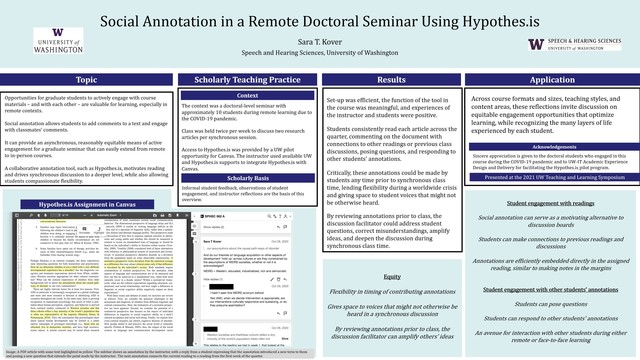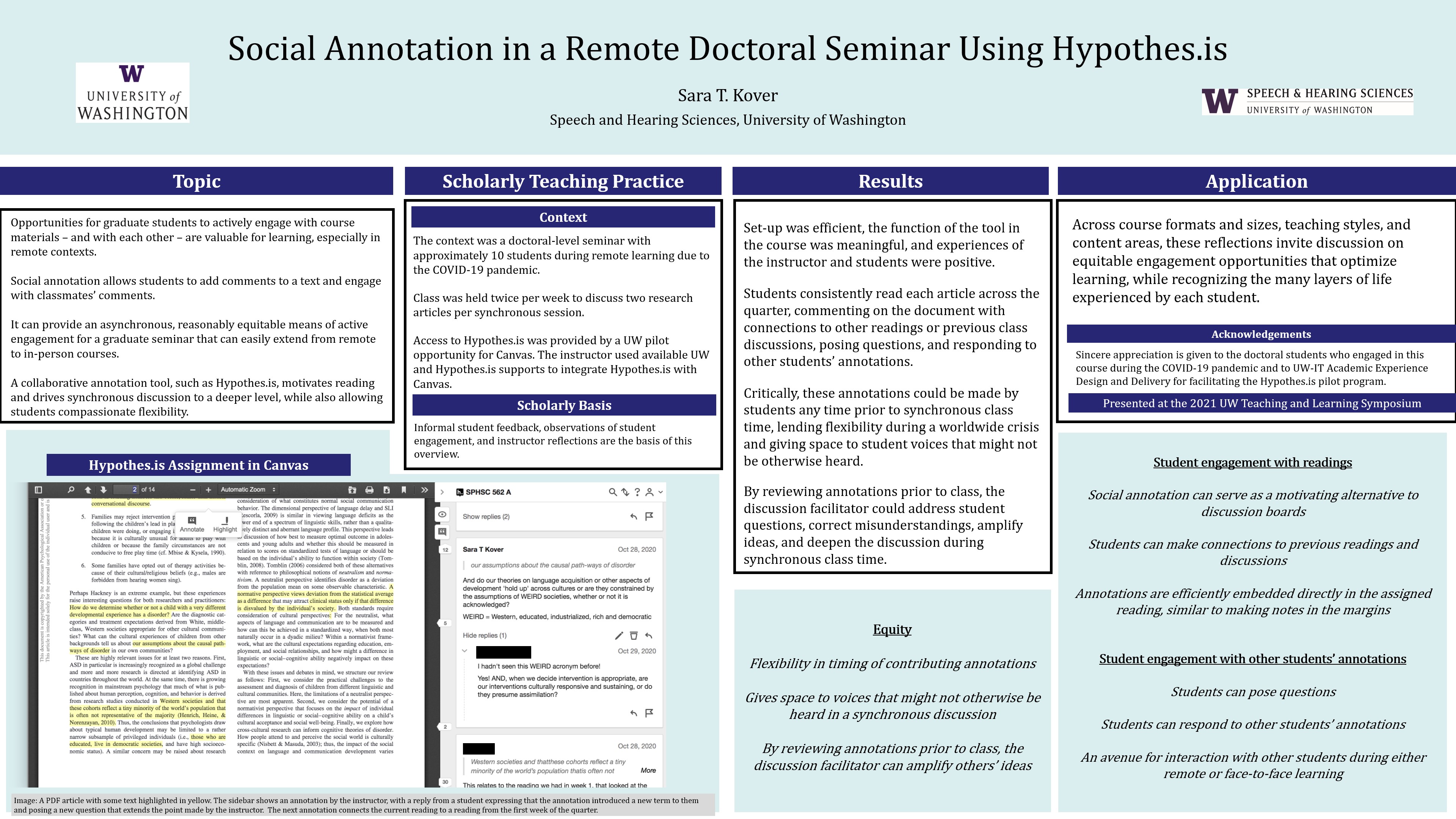Skip to main contentResource added 
Social Annotation in a Remote Doctoral Seminar Using Hypothes.is

Full description
Video Presentation
Author:
Sara Kover, Speech and Hearing Sciences, UW SeattleAbstract:
Opportunities for graduate students to actively engage with course materials – and with each other – are valuable for learning, especially in remote contexts. Social annotation allows students to add comments to a text and engage with classmates’ comments. It can provide an asynchronous, reasonably equitable means of active engagement for a graduate seminar that can easily extend from remote to in-person courses. A collaborative annotation tool, such as Hypothes.is, motivates reading and drives synchronous discussion to a deeper level, while also allowing students compassionate flexibility. The context was a doctoral-level seminar with approximately 10 students during remote learning due to the COVID-19 pandemic. Class was held twice per week to discuss two research articles per synchronous session. Access to Hypothes.is was provided by a UW pilot opportunity for Canvas. The instructor used available UW and Hypothes.is supports to integrate Hypothes.is with Canvas. Informal student feedback, observations of student engagement, and instructor reflections are the basis of this overview. Set-up was efficient, the function of the tool in the course was meaningful, and experiences of the instructor and students were positive. Students consistently read each article across the quarter, commenting with connections to other readings or previous class discussions, posing questions, and responding to other students’ annotations. Critically, these annotations could be made by students any time prior to synchronous class time, lending flexibility during a worldwide crisis and giving space to student voices that might not be otherwise heard. By reviewing annotations prior to class, the discussion facilitator could address student questions, correct misunderstandings, amplify ideas, and deepen the discussion during synchronous class time. In terms of application, across course formats and sizes, teaching styles, and content areas, these reflections invite discussion on equitable engagement opportunities that optimize learning, while recognizing the many layers of life experienced by each student.Poster PDF
View a PDF version of the poster in Google Drive to enlarge the image or download a copy.
Comments
The presenter for this poster will be available to respond to comments during Poster Session 1 on April 20, 2:00-2:50 p.m.Comments
to view and add comments.
Annotations
No one has annotated a text with this resource yet.
- typeImage
- created on
- file formatjpg
- file size2 MB
- publisherUniversity of Washington
- rights


